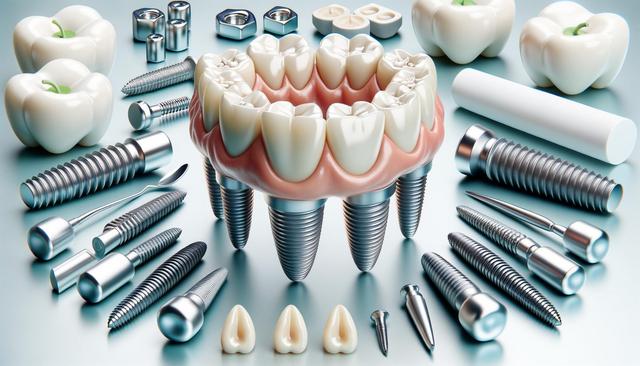What to Expect During the Dental Implant Procedure from Start to Finish
Understanding what to expect during the dental implant procedure from start to finish can help ease anxiety and prepare patients for a successful outcome. The process typically begins with a consultation and thorough evaluation, including X-rays and 3D imaging to assess bone density and overall oral health. After this planning phase, the implant placement surgery is scheduled. During the surgery, a small titanium post is inserted into the jawbone where the missing tooth root was located. This post acts as a stable foundation for the future crown.
Healing takes time, often several months, as the bone integrates with the implant in a process called osseointegration. Once healing is complete, an abutment is attached to the implant, followed by the placement of a custom-made crown that matches the surrounding teeth. The procedure is generally done under local anesthesia and is considered minimally invasive with proper care. Knowing each step in advance allows patients to plan their schedule and manage expectations during recovery.
Cost of Dental Implants and Financing Options Available in 2025
One of the most common concerns for those considering implants is the cost of dental implants and financing options available in 2025. The total cost can vary depending on several factors, including the number of implants needed, geographical location, and the complexity of the case. On average, a single dental implant may range from $3,000 to $5,000, including the post, abutment, and crown. Additional procedures like bone grafting or sinus lifts may increase expenses.
Fortunately, many dental clinics in 2025 offer flexible payment plans and financing solutions to make implants more accessible. These may include:
- In-house financing with low or no interest
- Third-party financing through medical loan providers
- Health savings accounts (HSAs) or flexible spending accounts (FSAs)
- Insurance reimbursement for parts of the procedure, depending on coverage
Patients are encouraged to request a detailed cost estimate and explore all available financing routes during their initial consultation.
How to Care for Dental Implants to Ensure Long-Term Success
Post-surgery care plays a vital role in the longevity of implants. Understanding how to care for dental implants to ensure long-term success is essential for maintaining oral health and protecting one’s investment. Although implants are made of durable materials, they still require consistent hygiene and regular dental visits.
Key care guidelines include:
- Brushing twice daily with a soft-bristle toothbrush and non-abrasive toothpaste
- Flossing daily using implant-specific floss or interdental brushes
- Rinsing with an antibacterial mouthwash to minimize plaque buildup
- Scheduling professional cleanings and checkups every 6 months
It’s also important to avoid hard foods that could damage the crown and to quit smoking, as it can compromise healing and implant success. With proper care, implants can last decades and function much like natural teeth.
Best Dental Implant Clinics with High Patient Satisfaction Ratings
Choosing the right provider can significantly impact the success and experience of the procedure. Patients often seek out the best dental implant clinics with high patient satisfaction ratings to feel confident in their care. These clinics generally stand out for their professionalism, advanced technology, and personalized treatment plans.
While no single clinic can be declared universally superior, there are common traits among top-rated practices:
- Experienced oral surgeons and prosthodontists with specialized training
- Use of 3D imaging and digital planning tools
- Transparent pricing and comprehensive consultations
- Positive reviews and testimonials from previous patients
Patients are encouraged to research clinics in their area, request before-and-after photos, and ask for referrals. A strong patient-clinic relationship built on trust and communication often leads to better outcomes and satisfaction.
Dental Implants for Seniors: Benefits
The demand for dental implants among older adults is growing, and for good reason. Dental implants for seniors: benefits include improved function, aesthetics, and overall quality of life. Unlike dentures, which can slip or cause discomfort, implants provide a secure and natural-feeling solution for tooth loss.
For seniors, key advantages include:
- Enhanced chewing ability and speech clarity
- Prevention of bone loss in the jaw
- Improved facial structure and support
- Elimination of adhesives and removable appliances
Many seniors qualify for implants regardless of age, provided they are in good general health and have sufficient bone density. Advances in implant dentistry have also made the procedure more accessible, with minimally invasive techniques and shorter recovery times. Consulting with a qualified provider can help determine the most suitable treatment plan based on individual needs.
Conclusion: Making an Informed Choice About Dental Implants
Dental implants offer a reliable and long-lasting solution for those dealing with tooth loss. Whether you’re researching what to expect during the dental implant procedure from start to finish or exploring the cost of dental implants and financing options available in 2025, having accurate information is key. Proper post-surgery care and choosing the right provider can enhance outcomes significantly. Additionally, the growing popularity of dental implants for seniors highlights their effectiveness across age groups. With thoughtful planning and the right support, dental implants can help restore both function and confidence in your smile.




Leave a Reply